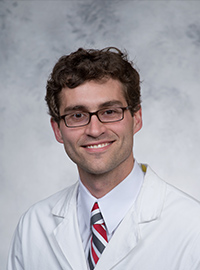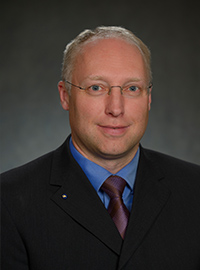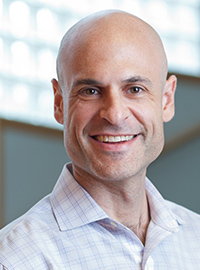Awards & Prizes

Justin E. Bekelman, MD, an associate professor of Radiation Oncology and Medical Ethics and Health Policy and senior fellow in the Leonard Davis Institute for Health Economics, received the 2018 Cancer Control Award from the Philadelphia Market of the American Cancer Society. The annual honor recognizes an individual “who has made a major and unique contribution to cancer control.” Bekelman received the award at the ACS awards dinner in King of Prussia in early November.

Frederick S Kaplan, MD, the Isaac And Rose Nassau Professor of Orthopaedic Molecular Medicine in Orthopaedic Surgery, has been awarded the Grand Hamdan International Award on Musculoskeletal Disorders. The honor notes that his “investigations of the rare diseases Fibrodysplasia ossificans progressiva (FOP) and Progressive osseous heteroplasia (POH) have uncovered mechanisms so pathogenically fundamental to tissue metamorphosis that they have challenged existing dogma far outside the usual realm of musculoskeletal medicine.” Kaplan will be honored in a ceremony to be held in Dubai, United Arab Emirates, in December.

Virginia Lee, PhD, the John H. Ware 3rd Endowed Professor in Alzheimer's Research, received the 2018 Robert A. Pritzker Prize for Leadership in Parkinson's Research from the Michael J. Fox Foundation for Parkinson's Research. Given in recognition of researchers who make exceptional contributions to Parkinson's research and are committed to mentoring the next generation of Parkinson's scientists, Lee is the first female researcher to be selected for the Pritzker Prize. She was presented the prize at a Foundation event in New York City in November.

Kiran Musunuru, MD, PhD, MPH, an associate professor of Cardiovascular Medicine, received the Judson Daland Prize for Outstanding Achievement in Clinical Investigation from the American Philosophical Society for his work discovering and therapeutically targeting genes that contribute to cardiovascular disease. Musunuru accepted the award in November, which comes with $50,000 prize in recognition of his outstanding achievement in patient-oriented research.

Christoph Thaiss, PhD, an assistant professor of Microbiology, has been awarded the Science & SciLife Lab Grand Prize for Young Scientists. An essay by Thaiss on his body of research to date, published in Science, is part of his recognition. Thaiss’ work addresses how the gut microbiome influences metabolic disease, and in turn, how a better understanding of this complex relationship can be applied to human biology, which he is actively pursuing at Penn.
Penn Medicine was named as a winner of a CSO50 award for its Just in Time Awareness (JITA) project, a platform created to deliver in-the-moment digital security education as employees access potentially risky websites. Penn Medicine was one of 50 organizations recognized by CSO—an online news outlet focused on cyber security—for security initiatives that display “outstanding business value and thought leadership.” The award will be given out during the CSO Conference in Scottsdale, Ariz., in April 2019. Seth Fogie, director of IS security, Andrea Thomas-Lloyd, director of information assurance, Dwight Hobbs, senior security engineer, Dan Costantino, chief information security officer, Gary Davidson, senior vice president and chief information officer of Lancaster General Health, were all involved with the project.
Grants

Joshua Baker, MD, MSCE, an assistant Professor of Rheumatology, received a $50,000 research grant from the Glenn Foundation for Medical Research and the American Federation for Aging Research to study age and obesity-related changes in skeletal muscle energy production and fat distribution, and associations with joint inflammation and cartilage break down in osteoarthritis.

Mathias Basner, MD, PhD, an associate professor of Sleep and Chronobiology, and Alexander C. Stahn, PhD, an assistant professor of medical science in Psychiatry, received a NASA grant to study changes in the brain during long-duration, low-Earth orbit missions. The project supports NASA’s long-term plans, including human missions to the Moon and Mars.

A research team led by Scott Halpern, MD, PhD, a professor of Medicine, Epidemiology, and Medical Ethics and Health Policy, has received an $11 million grant from the Patient-Centered Outcomes Research Institute (PCORI) to develop the largest study ever done comparing different strategies to help lung cancer screening patients to stop smoking. The project was one of three, selected from 91 applicants, to receive funding from PCORI’s pragmatic clinical studies to evaluate patient-centered outcomes’ program. The trial will include 3,200 current smokers from underserved populations who are referred for lung cancer screening at Penn and three other health systems: Geisinger Health System, Kaiser Permanente South California, and Henry Ford Health System. Halpern is also the Director of Penn's Palliative and Advanced Illness Research (PAIR) Center and the Fostering Improvement in End-of-Life Decision Science (FIELDS) program.
.ashx?w=200&la=en)
A team at Penn, led by L. Scott Levin, MD, FACS, chair of Orthopaedic Surgery and a professor of Plastic Surgery, received a grant to further work in Vascularized Composite Allotransplantation (VCA), launching a study aimed at better understanding and measuring the physical, emotional, and social outcomes of upper extremity VCA recipients. The ultimate goal will be to implement more holistic quality of life outcomes evaluations and to standardize the VCA candidate screening process. This work was supported by the Assistant Secretary of Defense for Health Affairs endorsed by the Department of Defense, through the Reconstructive Transplant Research Program (RTRP) Qualitative Research Award(W81XWH18-2-0067). Opinions, interpretations, conclusions and recommendations are those of the author and are not necessarily endorsed by the Department of Defense. This support is part of a larger grant shared with researchers from Walter Reed National Military Medical Center and the University of Delaware.
Penn Medicine is one of the world’s leading academic medical centers, dedicated to the related missions of medical education, biomedical research, excellence in patient care, and community service. The organization consists of the University of Pennsylvania Health System and Penn’s Raymond and Ruth Perelman School of Medicine, founded in 1765 as the nation’s first medical school.
The Perelman School of Medicine is consistently among the nation's top recipients of funding from the National Institutes of Health, with $550 million awarded in the 2022 fiscal year. Home to a proud history of “firsts” in medicine, Penn Medicine teams have pioneered discoveries and innovations that have shaped modern medicine, including recent breakthroughs such as CAR T cell therapy for cancer and the mRNA technology used in COVID-19 vaccines.
The University of Pennsylvania Health System’s patient care facilities stretch from the Susquehanna River in Pennsylvania to the New Jersey shore. These include the Hospital of the University of Pennsylvania, Penn Presbyterian Medical Center, Chester County Hospital, Lancaster General Health, Penn Medicine Princeton Health, and Pennsylvania Hospital—the nation’s first hospital, founded in 1751. Additional facilities and enterprises include Good Shepherd Penn Partners, Penn Medicine at Home, Lancaster Behavioral Health Hospital, and Princeton House Behavioral Health, among others.
Penn Medicine is an $11.1 billion enterprise powered by more than 49,000 talented faculty and staff.